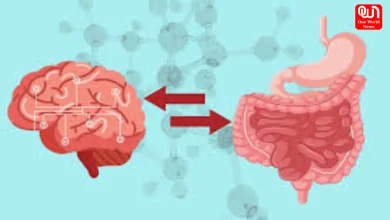Do you know Drinking from plastic bottles could raise blood pressure?
By being mindful of our choices, we can reduce BPA exposure and potentially safeguard our health, keeping our blood pressure and overall well-being in check.
Drinking from plastic bottles could raise blood pressure
In our busy and hectic life, having a plastic water bottle can easily be purchased and appears to be completely innocent. However, new findings indicate that this simple and routine activity may be hazardous to health in the following ways: increasing blood pressure. The culprit? Saying that, Bisphenol A (BPA), a chemical utilized in a lot of plastic products, let alone water bottles.

read more –Top 5 Affordable And Healthy Desi Swaps For Western Ingredients
Understanding BPA and Its Effects
BPA is a synthetic material that is used in industries for making plastic rigid and to prevent corrosion of metal occurring in cans of food and beverages. It’s widely used in everyday items ranging from water bottles to the containers used in packaging our foods. Admittedly, their versatility cannot be argued; however, this chemical can migrate into the water or food stored in such containers if exposed to heat or direct sunlight.
BPA and Blood Pressure Connection
The research has shown that BPA is capable of disrupting endocrine function as this is the body system that deals with hormones. A large investigation conducted on BPA published in the *Hypertension* journal indicated that consumption of water in PET bottles contributes to a rise in blood pressure albeit for a shorter period. The study, therefore, confirmed that consumers, who took water from containers containing BPA recorded raised blood pressure levels than the group, which consumed water from glass bottles.
Read more –5 Foods Never to Pair with Your Tea: Unhealthy Food Combinations to Avoid
How Does This Substance Harm the Body, Specifically Raising Blood Pressure?
Some of the functions regulated by estrogen include the heart and blood vessel control, therefore, by mimicking estrogen, BPA can impact it. This substance interacts with estrogen receptors and may affect normal working of estrogen hormones that are crucial in the control of blood vessel size and blood pressure regulation. Thus, long-term accumulation of BPA may lead to the chronic cardiovascular effects even with the mixture.
Reducing BPA Exposure
To mitigate the potential health risks associated with BPA, consider the following tips:To mitigate the potential health risks associated with BPA, consider the following tips:
1. Use BPA-Free Products: It is advisable to avoid plastic products that contain BPA and go for those that are BPA-free.
2. Opt for Alternatives: Drink and store food in glass, stainless steel or any other BPA free material.
3. Avoid Heat Exposure: Also, do not use plastic containers for reheating food in the microwave, or let plastic bottles with water stay in the sun or in a hot car as this will cause BPA to be released in the food or water.
4. Read Labels- BPA is commonly used in plastics, which makes it important to read product labels if you plan to store food and drink in the containers.
These simple changes may help shield us from the dangers of BPA with the hope of improving on our blood pressure as well as general health.
We’re now on WhatsApp. Click to join
Like this postRegister at One World News to never miss out on videos, celeb interviews, and best reads.








